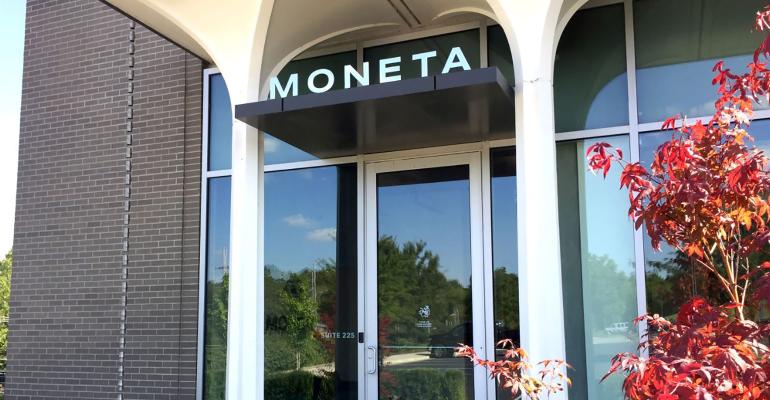Last week, Moneta, a registered investment advisor with $27 billion in assets under management, launched its own trust company, Moneta Trust. Moneta CEO and Chairman of the Board Eric Kittner said the move by the partner-owned company was motivated by client demand as well as the RIA’s desire to control the process of establishing and servicing the legal structures for clients.
“From a service level perspective, we felt it would be better if we had control, and quite frankly, our clients really wanted us to truly serve in that capacity and not outsource it to a third party,” Kittner said.
Having their own trust company also allows RIAs to retain assets that might otherwise leave the firm if an outside trust provider were to enter the picture.
“If a corporate trustee comes into play, and it’s a Bank of America, they’re more likely than not not going to work with us” as investment advisors, he said. “They have their own trust department; they have their own investment vehicles and their own investment teams. So the assets in a situation like that will walk out the door.”

Moneta Group CEO and Chairman of the Board Eric Kittner
Other large RIAs and broker/dealers have also launched their own trust companies in recent years. Creative Planning has its own trust company, as does Mercer Advisors, via its acquisition of Kanaly Trust in 2016.
Kestra Financial now has a trust company subsidiary, Arden Trust Company, through its acquisition of Reliance Trust Company of Delaware in December 2018. The firm is working more closely with Arden to package trust services for its 2,400 advisors across its wealth management businesses. Advisor Group, a large broker/dealer network, also has a trust subsidiary, Premier Trust, which came over as part of its acquisition of Ladenburg Thalmann.
Trust companies generally oversee trusts for clients, providing legal and administrative services, portfolio management, and sometimes physical safekeeping services for assets like jewelry or collectibles.
Although the demand for trust services is growing, observers don’t expect the trend of RIAs bringing these kinds of services inside their own shops to become a widespread trend—it's a specific legal niche with a lot of ongoing administrative responsibilities and fiduciary obligations that can extend to future generations.
“It used to be maybe very wealthy families set up trusts,” said John (Jack) P. Garniewski Jr., past president of the National Association of Estate Planners and Councils and principal of Family Office Solutions in Greenville, Del. “Now anyone, with any amount of wealth, is concerned about asset protection, and trusts are a way of providing asset protection, as well as, upon your death, the trust serves as a way of how your assets will either be managed and distributed over a long period of time.”
Kittner agrees that not a lot of RIAs will follow suit, but for Moneta, it was a strategic decision. Previously, the firm used National Advisors Trust, which works with financial advisors to handle the administration of the trust and lets the advisors continue to manage the assets.
“As our clients became more complex—more illiquid assets, businesses, houses, boats—all those things, we really needed a different solution,” Kittner said.
Garniewski says there are a lot of independent trust companies, such as National Advisors, out there that will be third-party administrators and allow the advisor to sort of white-label their trust services and continue managing the assets.
“What you're probably seeing with these large RIAs is the fact that it may seem like a better idea to have a captive trust company where they're actually not only managing the money, but also they have a trust company that's part of their suite of services,” Garniewski said. “You start getting into the specifics, and forming a trust company is not easy.”
Each state has their own trust laws, and there are also federal regulations to comply with, he said. He estimates that you’d need at least $1 million of capital to set up a trust company. You have to have compliance officers and trust officers who have the expertise in the space and can act in a fiduciary capacity. You also have to be audited by an outside firm. There’s also a lot of liability involved.
“When you find this type of trend going on, you start scratching your head,” he said. “This is a tremendous benefit, business advantage, being able to compete against other money managers who have trust companies associated with their business model. It also has the potential of creating a liability if you really don't have, what I call the back office and the front office relating to the compliance aspects of being a trustee.”
“You have to be a really large organization to purchase and maintain a trust company properly,” says John Yackel, head of strategic initiatives for Envestnet. “What we’re seeing is a little bit of a different trend. The majority of [RIAs] are like, ‘We’re not capitalized to go buy a trust company,’ and to maintain it, the general accepted rule of thumb is that if you can’t get your trust company to $5 to $10 billion—the actual trust company itself—you really shouldn’t be in the business of trying to run this based on your state or OCC charters because of the rules and regulations. It just takes a lot.”
In February, Envestnet announced the launch of Envestnet Trust Services Exchange, an initiative meant to help RIAs and b/ds access trust and estate-planning services and attorneys for clients.
The Envestnet offering has three main components: software (powered by Trucendent) that helps advisors make recommendations on the appropriate trust vehicles; an estate planning attorney network; and corporate trustee services.
Envestnet will partner with three or four RIA-friendly trust companies to provide those trustee services. The firm recently announced that BOK Financial would be one of those trust companies. Yackel said the firm plans to announce two others by the end of the second quarter.
“The trust companies we’re hiring and bringing in—they have to work with financial advisors in our ecosystem that allow them to be what this market calls ‘directed and delegated trusts,’” Yackel said. “So the financial advisor at any RIA still wants to manage the money; they want to custody and clear it with their preferred custodian, and they’re not moving the assets to the trust company—period. We built it specifically for that.”
Yackel believes offerings like Envestnet’s reduces the need for RIA firms to have their own trust companies.
“The belief of, ‘Well, if I buy my own trust company, I can control that experience better.’ The challenge is, that trust company has to kind of build a wall between the different entities, and that’s why they’ve been challenged, because there’s been lack of integration between a trust delivery application and their wealth management platform. No one’s been able to kind of bridge that gap.”
He argues Envestnet is helping to bridge that gap via technology.
“With success here with what we’re bringing to the marketplace, you’ll see other large RIAs not needing to be in the trust business. Anybody that’s ever run a trust company and understands the cost to be able to manage one and go through the audits and compliance and regulatory perspectives of it—it’s not for the faint of heart. And you do need scale and size to do this and do it profitably.”





